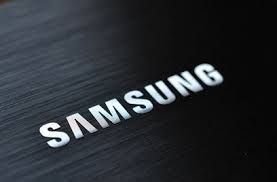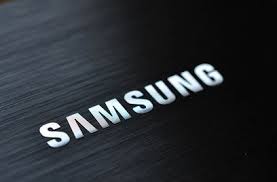
South Korean electronics giant is trying to start a culture that infuses the Silicon Valley startup culture into a huge multinational conglomerate.
Progress in this aspect is being made primarily due to the setting up of an innovation centre, accelerator, partnerships and a strategic investment group formed over the past few years in the Bay Area.
Samsung’s Strategic Investment group at the Global Innovation Centre in Silicon Valley, headed by Brendon Kim, has the mission to make Samsung innovate more like a startup. Kim who had joined the company in 2013 from venture capital firm Altos Ventures, is encouraging innovation among and outside the Samsung gambit. Samsung has another such innovation centre in New York City.
Far from Samsung’s hardware orientation, Kim has been overseeing strategic investments in startups with all kinds of technologies. Virtual reality, artificial intelligence, security, Internet of Things, and e-commerce are some the areas that experts in innovation at the two centres are working on.
“We’re infusing a startup culture within Samsung in soft innovations. At heart, Samsung is a hardware company that has done extremely well in volume manufacturing,” says Kim.
Since 2013 anything between $250,000 to $3 million in each deal typically, with a startup company as a co-investor has been invested by Samsung’s 10-person Strategic Investment group which has made 36 investments so far.
To bring the latest innovations in-house and working with business product units is the aim and corporate strategy of the company management behind these investments in startup companies.
Much like a venture capital firm that makes money when its investee companies go public or get acquired, the Samsung investment team also views the investments group as a money-making endeavour. Seven of those 36 portfolio companies have been acquired while some that have not been making progress have been shut down.
“We are trying to bring more of a startup culture into Silicon Valley, and we expect some of these startups to fail — so long as they don’t repeat mistakes,” says Kim.
LooPay, a mobile payments company, which was acquired by Samsung in early 2015, is one of the success stories. Giving it an alternative to Apple Pay as a mobile payment platform, LooPay has been a “huge source of innovation” for Samsung.
The acquisition that moved Samsung into the centre of the smart home market is the 2014 acquisition of Smart Things, Kim points out. Specializing in technology to sync up connected gadgets onto a single smartphone app and hardware hub, Smart Things, the Washington D.C. startup was moved to Palo Alto, is another success story for the Samsung start up investment initiative.
Samsung is also focusing in the area of artificial intelligence and the company is in search to find technologies to make machines function more like the brain but without the massive data and computing power that is required today.
For the startups, the strategic global reach of Samsung is an advantage if the startups are able to innovate something to fit into the Samsung league.
(Source:www.forbes.com)
Progress in this aspect is being made primarily due to the setting up of an innovation centre, accelerator, partnerships and a strategic investment group formed over the past few years in the Bay Area.
Samsung’s Strategic Investment group at the Global Innovation Centre in Silicon Valley, headed by Brendon Kim, has the mission to make Samsung innovate more like a startup. Kim who had joined the company in 2013 from venture capital firm Altos Ventures, is encouraging innovation among and outside the Samsung gambit. Samsung has another such innovation centre in New York City.
Far from Samsung’s hardware orientation, Kim has been overseeing strategic investments in startups with all kinds of technologies. Virtual reality, artificial intelligence, security, Internet of Things, and e-commerce are some the areas that experts in innovation at the two centres are working on.
“We’re infusing a startup culture within Samsung in soft innovations. At heart, Samsung is a hardware company that has done extremely well in volume manufacturing,” says Kim.
Since 2013 anything between $250,000 to $3 million in each deal typically, with a startup company as a co-investor has been invested by Samsung’s 10-person Strategic Investment group which has made 36 investments so far.
To bring the latest innovations in-house and working with business product units is the aim and corporate strategy of the company management behind these investments in startup companies.
Much like a venture capital firm that makes money when its investee companies go public or get acquired, the Samsung investment team also views the investments group as a money-making endeavour. Seven of those 36 portfolio companies have been acquired while some that have not been making progress have been shut down.
“We are trying to bring more of a startup culture into Silicon Valley, and we expect some of these startups to fail — so long as they don’t repeat mistakes,” says Kim.
LooPay, a mobile payments company, which was acquired by Samsung in early 2015, is one of the success stories. Giving it an alternative to Apple Pay as a mobile payment platform, LooPay has been a “huge source of innovation” for Samsung.
The acquisition that moved Samsung into the centre of the smart home market is the 2014 acquisition of Smart Things, Kim points out. Specializing in technology to sync up connected gadgets onto a single smartphone app and hardware hub, Smart Things, the Washington D.C. startup was moved to Palo Alto, is another success story for the Samsung start up investment initiative.
Samsung is also focusing in the area of artificial intelligence and the company is in search to find technologies to make machines function more like the brain but without the massive data and computing power that is required today.
For the startups, the strategic global reach of Samsung is an advantage if the startups are able to innovate something to fit into the Samsung league.
(Source:www.forbes.com)





